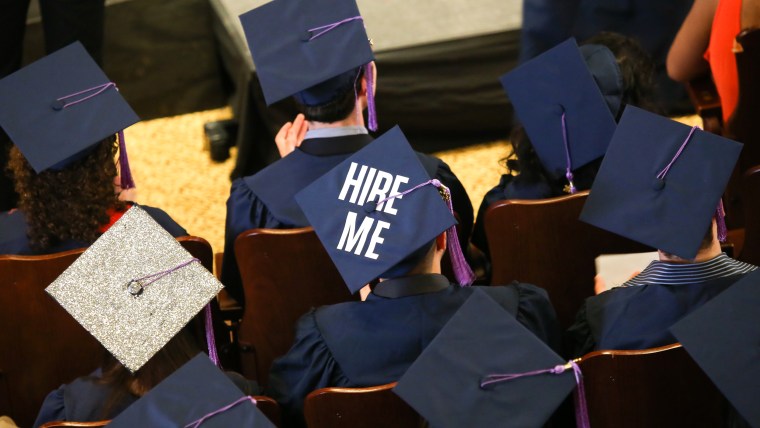As the latest crop of millennials collect their diplomas and head into the workforce, they’ll be facing a host of stereotypes: That they are entitled, or lazy and/or lack a strong work ethic.
Join the club.
The Baby Boomers were considered so spoiled and self-absorbed that the writer Tom Wolfe dubbed the 1970s the “Me Decade.”
Then came Generation X, which was considered to have so little interest in working hard that they were called “slackers.”
Now it’s the millennials turn. The youngest generation of American workers is entering the workplace amid accusations that they are self-centered, unable to take criticism and unschooled in the art of working hard: “The Me Me Me Generation,” as Time magazine put it.
That’s got some researchers wondering: Are all these generations really so different?
“From my standpoint, it’s not a generational thing. It’s actually a stage of life issue,” said Patrick Wright, business professor at the Darla Moore School of Business at the University of South Carolina.
Wright, whose research focuses on human resources, said he thinks positive and negative traits pinned on younger workers (mostly by older one) are less about generation and more about age.
Younger workers are naturally more fluent in the latest communications technologies because they have grown up with them. And they tend to be more likely to want to work for a company that does good in the world because they are idealistic.
“Kids coming out of high school – guess what, they have kind of a different view of the world than people paying taxes,” he said.
Still learning
They also may be more prone to making mistakes – showing up late, dressing inappropriately or having one too many drinks at the office happy hour - because they are still learning the skills it takes to be a good worker. He thinks it’s unrealistic to expect young employees to walk into the workforce already knowing everything older workers have learned over the years.
“We tend to overestimate what we were like at that age and therefore think that this is a different generation,” he said. “If you’re honest with yourself and you look at the way you were at that age, you have to say, ’These kids are not that different.’”
Jacquelyn James, director of research at the Sloan Center on Aging & Work at Boston College, said people of different generations do have unique experiences that will affect how their lives and careers go.
The Greatest Generation adopted lifelong frugal financial habits as a result of the Great Depression, for example, and the Baby Boomers’ experiences were affected by the sheer size of their generation.
Now, some millennials will no doubt feel the lifelong repercussions of coming of age in a very difficult economic period, in which jobs have been harder to find and layoffs a constant, looming worry.
But James said her research has shown that there may be more similarities than differences among the various generations of workers. All generations value honesty in their leaders, for example, and say family is a top priority.
“For something to be a generational characteristic, it needs to be something that carries with you through time,” she said. “Most of the traits and characteristics we’re talking about are about people entering the workforce, and those are life stage issues.”
James noted that most schools provide little preparation for entering the workforce, so young workers have to learn to adapt to a new culture that is very different from being a student.
Self-discovery
A person’s early years at work also are often a time of self-discovery, she said, when people are still trying to figure out what type of job they want, how hard they want to work and how to navigate things like office politics and dealing with bosses. Some of the stereotypes associated with a certain generation may fade as they get past those hurdles.
“If you follow these people who are entering the workforce over time, I do not think that these characteristics would exist,” she said.
James noted that it’s easy for managers to type cast people – to say that younger people can’t take criticism or older people aren’t good at technology - without thinking about how those assumptions limit your employees, and your company’s chance of success.
“These stereotypes have consequences,” she said.
Not everyone agrees that the characteristics of the millennials have much to do with just being young.
Sherri Elliott-Yeary, a workplace consultant and speaker who calls herself the “Generational Guru,” said her research shows that millennials are not willing to make work the central focus of their lives as Baby Boomers have.
For example, she said said she recently was brought in to consult with a car manufacturer whose millennial employees were walking off the floor because the work was too hard.
“Most boomers come to work because they get a paycheck,” she said. “Millennials come to work so they meet friends and gain new experiences.”
She also said she recently worked with a large coffee retailer who was having trouble with millennials who couldn’t take criticism. She blames parents who gave everyone a trophy and didn’t let kids experience failure.
“Growing up, the majority of the time millennials have been told the majority of what they did was wonderful,” she said.
Allison Linn is a reporter at CNBC. Follow her on Twitter @allisondlinn or send her an e-mail.
